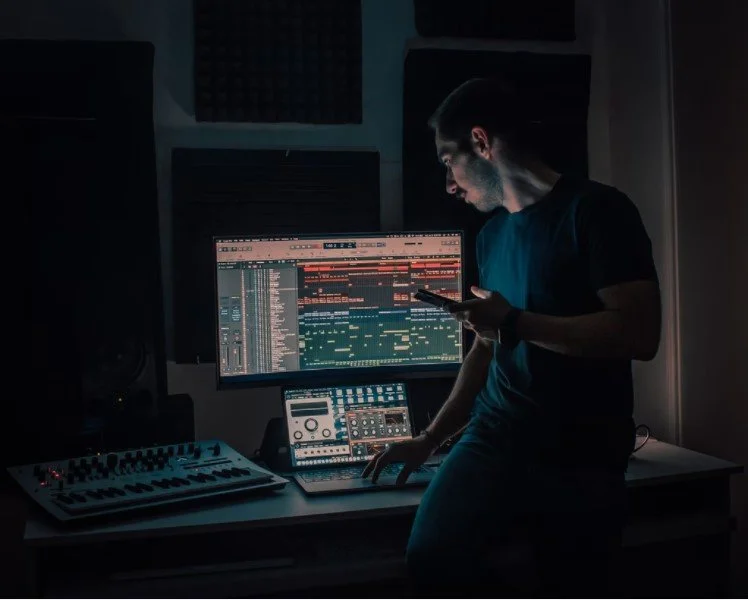Music producers are in charge of overseeing and managing the recording process. With the advancement of technology and the availability of readily available programmes, it is now simpler than ever to get into production with little or no expertise. A laptop can produce high-quality music, and the required hardware is inexpensive. The majority of learning resources can be accessed on the internet. However, there are several components of music that all producers should grasp.
https://unsplash.com/photos/OhTbOJH4w-w
It's Not Easy To Produce
Being a music producer is not easy, despite the fact that you can use tools from your home computer. You'll need a good ear for deciphering things like right pitch and what dynamics work well within a musical composition, as well as a working knowledge of editing and digital production. In addition, you must decide on the type of project or customer you wish to undertake.
Once you've identified your ideal customer, you'll need to devote some time to honing your art. To make sure you know what sound works best, you must work with a lot of precise elements and practise mixing several times. You want to be an expert, after all! Producing takes patience, time, concentration, and focus, as well as ensuring that you have the necessary equipment or DAW, as well as studio space if you can locate it.
You’re liable
Insurance ensures that you will be compensated for any losses or damages that may occur while conducting business. This covers a wide variety of topics for a producer, including crew health and location security. There are numerous forms of insurance available for producers, much like Film & TV Insurance, you need to make sure you’re covered.
Music Theory
Even if you don't play an instrument, you should have at least a rudimentary grasp of music theory. Dynamics, intonation, and allegro are all terms that a music producer should be familiar with.
The finest producers are first and foremost musicians. No matter how much experience you have, having a working understanding of theory and musical concepts is essential.
Creativity
In the realm of production, having your own products may really help you stand out from the crowd. Whether you engage in songwriting and know melodies, you can help people with their recordings in this way, or you can coin your own phrase for how you mix a track that you can "bottle" and offer to other producers in some way. Growth will always be necessary for your company (or any company for that matter! ), which comes to the next critical duty you should do.
Always be on the lookout for new methods to learn and connect.
With technology, there will always be something "new and better," so make sure you keep up to date. It's essential, especially if you operate alone, to continually be on the lookout for methods to expand your business, whether it's by expanding your email list or increasing your sales. Make sure you're up to date on what producers are doing and utilising, particularly those you respect and want to mimic. It makes you more marketable in your area, so if there's a new programme or piece of software/plugin you can download, you'll want to get it, experiment with it, and master it so you can provide it before another producer does.
Keep in mind that your reputation is crucial; if you have the possibility to collaborate with other producers, take advantage of it. You want to be seen as a positive impact on others. Instead of seeing them as "competition," cooperate and form connections with them, forming partnerships that will benefit you. You may excel at one part of producing while another is a specialist in an area you'd want to learn about - allowing you to negotiate and learn something new.
Make a list of your objectives and prioritise them.
Last but not least, as a music producer, you should know what you want to achieve — set a clear aim or target and work toward achieving it. Is there a certain genre you'd want to create? Do you prefer to work in a physical location or online?
Prioritise your tasks, especially if you're new to the industry. Make sure you're constantly meeting client deadlines, making phone calls and meetings, and maintaining professionalism by creating, building, and optimising your email list. Keeping your clients informed about assignments and ensuring that their opinions are heard. All of these factors will contribute to your success as a music producer.
With this information, you should be able to create amazing music that sounds fantastic.


